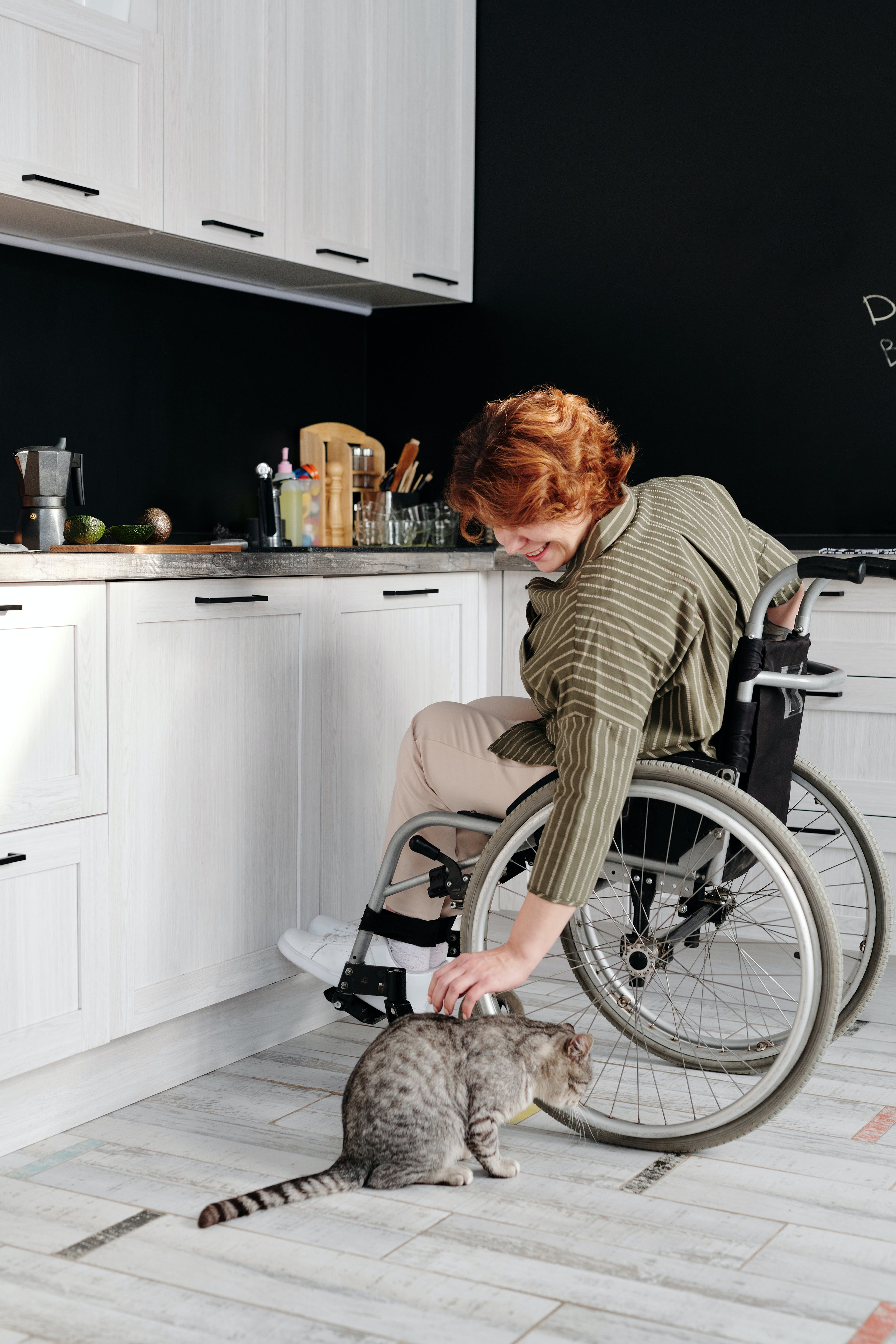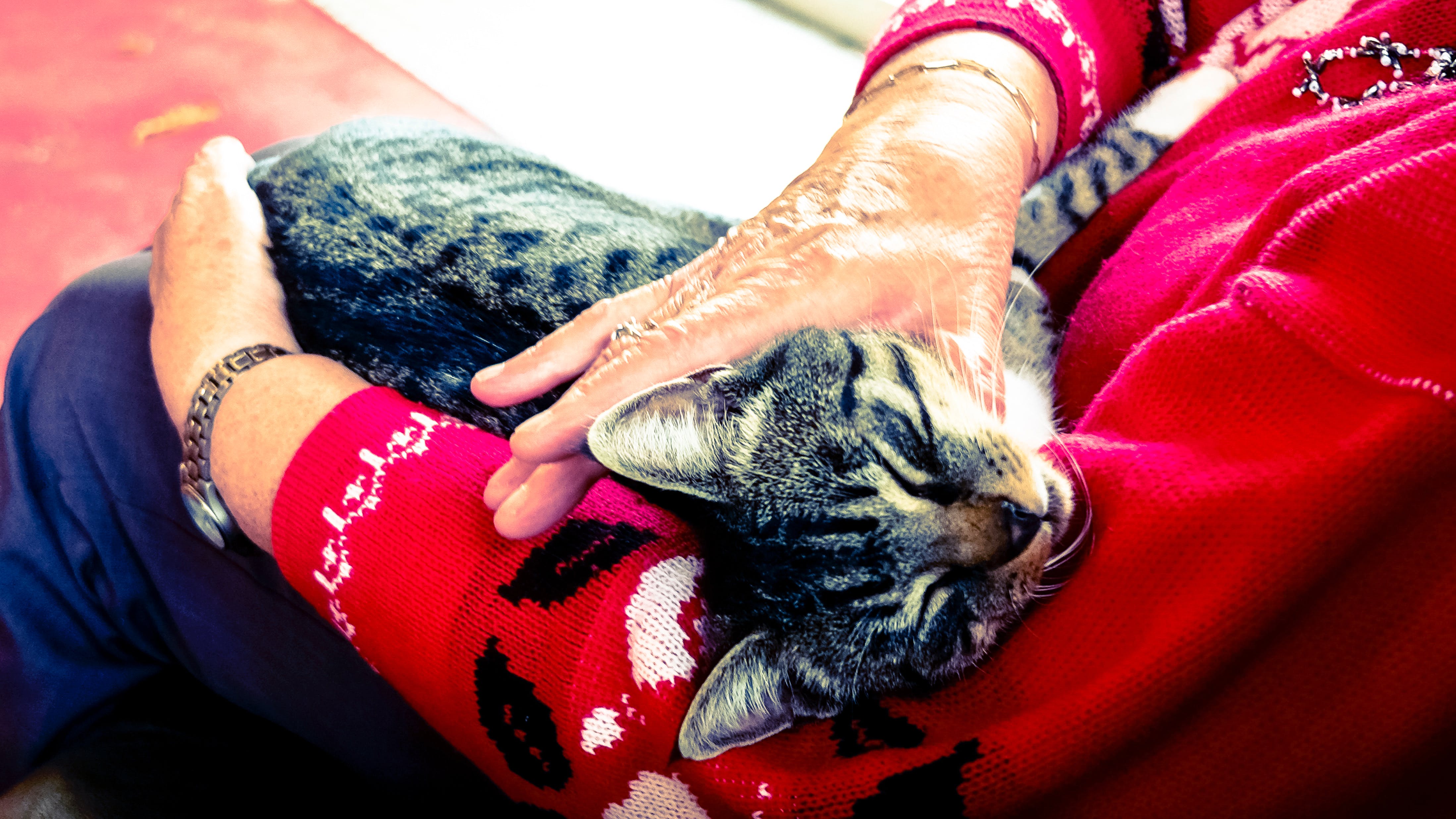Choosing a pet can be a joyful and rewarding experience for anyone, but for individuals with disabilities, the process requires extra consideration. It's essential to select a pet that not only brings companionship and joy but also suits the specific needs and abilities of the disabled person. In this guide, we'll explore some key factors to keep in mind when choosing a pet for a disabled individual, along while discussing the best pets for disabled.
1. Consider the Physical Abilities of the Individual 
The first and most crucial step in choosing a pet for a disabled individual is to assess their physical abilities. Different disabilities have varying impacts on mobility and strength. For someone with limited mobility, a small and low-maintenance companion like a cat or a small dog may be a suitable choice. In contrast, individuals with more mobility may be able to care for larger dogs, which can offer both companionship and assistance.
2. Allergies and Sensitivities
People with disabilities might have allergies or sensitivities that can be triggered by pet dander, fur, or feathers. It's vital to consider these factors when choosing a pet. Hypoallergenic breeds or non-allergenic animals like reptiles and fish may be more appropriate for individuals with allergies or respiratory issues.
3. Energy Levels
The energy level of the pet should match the energy levels and abilities of the disabled person. High-energy dogs may be too demanding for someone with limited mobility. In such cases, consider lower-energy dog breeds or cats. Turtles, tortoises, or certain bird species can also be great options for people with a more laid-back lifestyle.
4. Training and Temperament
When choosing a pet for someone with a disability, it's important to consider the pet's temperament and its training requirements. Well-behaved, easy-to-train pets are often a better fit. Look for pets that are known for their gentle and patient nature, as these characteristics can make the pet-owner relationship more enjoyable and less stressful.
8. Financial Considerations
Owning a pet comes with financial responsibilities. It's important to consider the cost of food, veterinary care, grooming, and other pet-related expenses. Make sure that the individual or their support network can handle these costs comfortably. Although some health service providers can provide guide dogs which can assist you in areas of your disability.
6. Maintenance and Care
Consider the level of care and maintenance that the chosen pet will require. Disabled individuals might have varying levels of ability to care for their pets independently. Assess whether the individual can groom, feed, and clean up after the pet. If assistance is required, make sure there is a support system in place, with the Tenura product range we can help improve the maintenance for you and your companions with our range of daily living aids!
7. Housing and Space
Take into account the living situation of the disabled individual. Do they live in an apartment, a house, or a care facility? The available space will influence the choice of a pet. Smaller living spaces may be more suitable for cats, small dogs, or small mammals, whereas larger spaces can accommodate bigger dogs or even livestock in some cases.
8. Assistance Animals
Some disabled individuals require assistance animals to help with daily tasks. Service dogs, for instance, can be trained to perform tasks like fetching dropped items, opening doors, or providing emotional support. Ensure that you consult with a reputable service animal organisation to select and train a service dog that meets the specific needs of the disabled person.

What Animals Can Be Used to Help The Disabled?
Cats and dogs are the most common animals used to assist people with disabilities. Dogs are highly versatile and can be trained to aid those with various disabilities, such as visual impairments, mobility challenges, and medical conditions like epilepsy or diabetes. Service dogs provide essential support by guiding their owners, retrieving items, and even alerting them to impending medical emergencies. Cats, although less commonly known as service animals, can offer valuable emotional support to individuals with disabilities. Their calming presence, companionship, and intuitive understanding of their owners' needs can be incredibly comforting. While dogs take on more active roles in assistance, cats excel in providing solace and emotional stability, making them essential companions for those with disabilities.
Can Animals Sense Disability?
Animals have a remarkable ability to sense disabilities in humans. Their acute senses and intuition enable them to detect physical and emotional changes in individuals. Many heartwarming stories and scientific studies have highlighted the incredible bond between animals and people with disabilities. Whether it's a service dog assisting someone with mobility challenges or a pet offering emotional support, these companions have an uncanny ability to understand and provide comfort to those in need. This unique connection between animals and individuals with disabilities is a testament to the profound sensitivity and empathy that our animal friends possess.
What Is The Best Dog Breed for Someone With a Disability?
When it comes to dog breeds for people with disabilities, several factors come into play. For individuals with mobility challenges, Labrador Retrievers, Golden Retrievers, and German Shepherds are often recommended as they are not only intelligent but also known for their gentle and helpful nature. However, the best dog breed ultimately depends on the specific needs and lifestyle of the disabled person. It's crucial to consult with a professional dog trainer or service dog organisation to make the right choice.
Choosing a pet for a disabled individual involves thoughtful consideration of their unique needs and abilities. The right pet can provide companionship, emotional support, and even assistance with daily tasks. By taking into account factors such as the individual's physical abilities, allergies, energy levels, temperament, and living situation, you can make a well-informed choice that will bring joy and fulfilment to both the person with a disability and their new furry or scaly friend. Learn more about animal therapy by reading our other blog.
If you're in need of daily living aids for a disabled individual, Tenura offers a range of high-quality products to improve daily life. To explore our offerings, please visit Tenura’s website.
Remember, the most crucial aspect of choosing a pet for someone with a disability is ensuring that the pet enhances their life, provides companionship, and supports their specific needs. Always consider the individual's comfort, safety, and happiness when making this important decision.